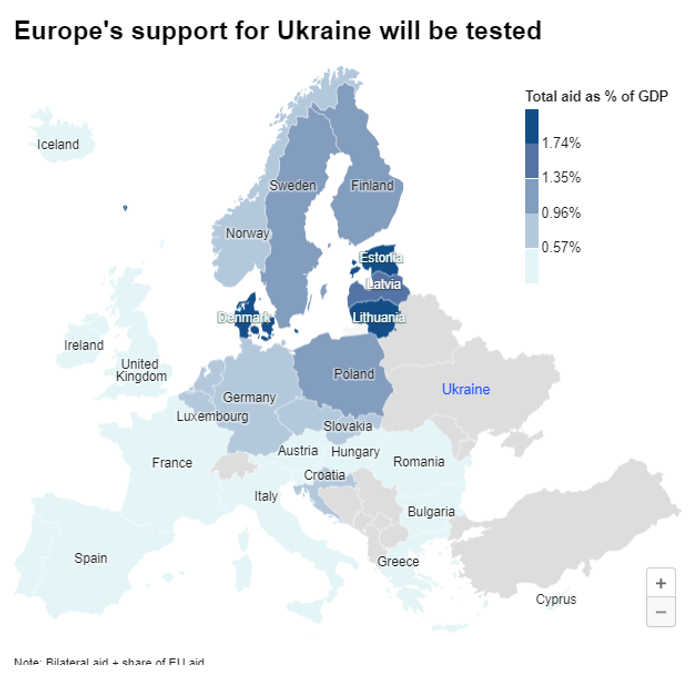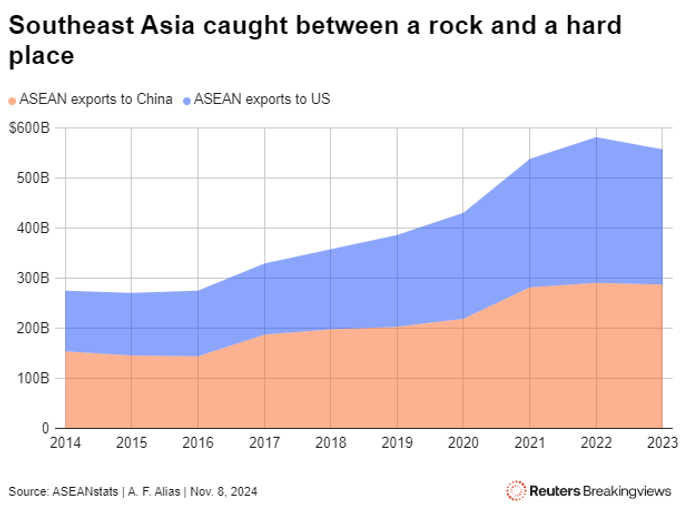Published 07:33 IST, November 12th 2024
Trump’s ‘America First’ revival could backfire
The president-elect’s first stint in the Oval Office showed that he cares little for rules and alliances but has a fondness for autocrats.
- Economy
- 5 min read

How to lose friends. “America First” is returning to the world stage. Donald Trump’s election victory heralds a revival of his nakedly transactional approach to foreign policy and trade. That will further erode global principles and make the United States a less reliable ally. Its friends in Europe and Asia may then hedge their bets, ultimately strengthening its rivals China and Russia.
The president-elect’s first stint in the Oval Office showed that he cares little for rules and alliances but has a fondness for autocrats. More recently he has called Russian President Vladimir Putin a “genius” for invading Ukraine and described Chinese President Xi Jinping as “brilliant” for controlling his people with an “iron fist”.
Trump has also said he would encourage Russia to do “whatever the hell they want” with those members of the NATO defence alliance that do not spend enough on defence. And he has promised to impose 10% tariffs on imports, even from friendly countries.
A relatively benign interpretation of these statements is that Trump still values these partnerships but is making threats to get better deals from allies on defence and trade. Robert O’Brien, who was U.S. national security advisor during Trump’s first term, argues that the president-elect would secure “peace through strength” by a robust foreign policy.
“Washington’s friends would be more secure and more self-reliant, and its foes would once again fear American power. The United States would be strong, and there would be peace,” O’Brien wrote in Foreign Affairs in June.
The snag is that Trump seems happy to throw his weight around to get a better deal even if that means bullying partners. He does not believe in the rules-based order, where principles govern international relations and trade. O’Brien calls it a “fictional abstraction”.
As a result, allies in Europe and Asia will trust the United States less and view it as an unreliable partner. They will look for alternative ways to protect themselves in a world where might matters more than right.
European dangers
Ukraine has the most to fear from Trump’s election. He may bully President Volodymyr Zelenskiy to accept a bad peace deal with Russia by threatening to cut off arms supplies unless it agrees terms.
The president-elect has said he could end the war in 24 hours, though he has not said how. His running mate, JD Vance, suggested that a deal could involve Kyiv giving Moscow the territory it currently illegally occupies and a guarantee that Ukraine would not become a member of NATO.
A bad peace deal in Ukraine would undermine the European Union’s defences by strengthening Russia. But Trump’s second term will also pose a broader challenge to the bloc as tariffs would hit its members’ already weak economies.

EU countries would ideally close ranks, invest more in their own defence, and provide more aid to Ukraine so it could keep fighting if the United States cut it off. But there is little chance that the EU, which has weak powers over foreign and defence policy, will do anything so bold. Some of the same nationalistic sentiments that helped Trump win are buoying right-wing political parties in Europe, many of whom are sympathetic to Russia. That makes it hard to agree on common action at the European level.
What is more, Germany and France, the EU’s two leading powers, are in the midst of political crises. Add in the fact that many governments have weak finances and it is hard to see Europe coming together strongly in the face of geopolitical threats.
It is more likely that each country will seek to put together a patchwork of deals. Some will seek to curry favour with Trump, some will cosy up to Putin and some will try to do both.
China will exploit these divisions. It will argue that Europe should make common cause with it on trade if both face U.S. tariffs. And it will do the same on fighting global warming if Trump carries out his threat to once again pull the United States out of the Paris climate agreement.
Asian risks
Xi will be looking for any opportunity to advance his ambition to incorporate Taiwan into China. He might interpret pressure by Trump on Ukraine as a sign that the United States would also do little to defend Taipei, especially as the president-elect has accused Taiwan of “stealing” the U.S. semiconductor industry.
Other American friends and allies in the Asia-Pacific region are already nervous about Trump’s return. Any weakness towards Taiwan would make them doubly so. Japan and South Korea will be less sure that the United States would defend them if China decided to bully them. As a result, they may seek to build their own nuclear weapons.
Meanwhile the Philippines, which has been shifting towards the United States partly to protect itself from Chinese aggression in the South China Sea, may in future be reluctant to antagonise Beijing. Vietnam, which has also been edging towards Washington, could conclude this was no longer wise. Even India, which became closer to the United States after a border dispute with China, has been repairing its relationship with the People’s Republic.

If China was able to dominate countries in its neighbourhood, it would establish itself as the undisputed hegemon of East Asia. If its close ally Russia was at the same time able to bludgeon Ukraine into a bad deal, the two powers would collectively have a strong position throughout Eurasia.
China argues that the United States is in decline. This is not entirely true. While it no longer dominates the global economy as it did in the 1960s, its long-term prospects may be better than those of the People’s Republic and its demographics certainly are.
But these are not the only reasons the United States is the world’s most powerful nation. Since World War Two, it has invested in a global network of alliances and the rule of law. If Trump imperils these, he may find that putting “America First” fulfils the prophecy of American decline.
Updated 07:33 IST, November 12th 2024